October 8, 2024 | 16:24 GMT +7
October 8, 2024 | 16:24 GMT +7
Hotline: 0913.378.918
October 8, 2024 | 16:24 GMT +7
Hotline: 0913.378.918
That is the judgment of Professor Klaus Schwab, Founding Chairman of the World Economic Forum (WEF), at a talkshow with young people in Ho Chi Minh City on October 6 on the topic "Knowledge Economy – A Foundation for a Prosperous Future and Action of the Youth.”.
At the talkshow with about 1,200 attendees, most of whom are young people, Professor Klaus Schwab, Founding Chairman of WEF, said he was honored to speak on the topic of shaping the future and the role of Vietnam in the global economy. It is the transformation to the Intelligence Era based on the innovations of the Industrial Revolution 4.0, where digital technology, artificial intelligence (AI), and advanced automation are transforming industries, reshaping commerce, and influencing the social structure in unprecedented ways.
Vietnam has embraced the trends of technological innovation, digitalization, and modernization with the Government's visionary policies to make Vietnam a digital powerhouse in Southeast Asia. The National Strategy on Industrial Revolution 4.0 and the National Digital Transformation Program to 2025 of the Vietnamese Government have set ambitious goals, aiming to increase productivity, improve the business environment, and ensure inclusive growth for all social classes.
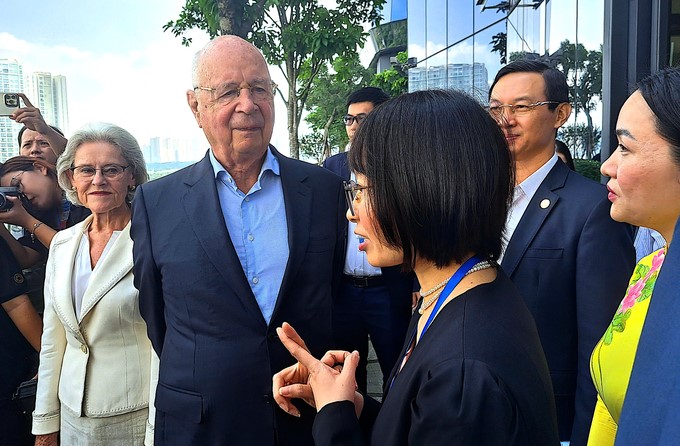
Professor Klaus Schwab talks with young intellectuals in Ho Chi Minh City on the sidelines of the talkshow. Photo: HT.
According to Professor Klaus Schwab, Vietnam's impressive economic development over the past few decades is evidence for Vietnam's recovery ability, flexibility, and strategic policy planning. As we enter the Intelligence Era, Vietnam needs to continue to change and take advantage of digital technology to maintain its competitive advantage. Currently, Vietnam has a population of more than 100 million people; GDP in 2024 is expected to reach USD 430 billion; GDP growth rate ranges from 6 to 7%; and the average age is just over 30 years old, making it a young country with great potential to become an economy worth USD 2,000 billion by 2050.
Vietnam's economic growth currently depends mainly on industries and exports, especially in the electronics and manufacturing sectors. Vietnam has proactively prepared for the digital future. The National Digital Transformation Program of the Vietnamese Government, with the goal of being in the top 50 countries in digital Government and digital economy by 2025, is an important foundation during the transformation process.
Professor Klaus Schwab assumes that there are four main areas where technology is reshaping Vietnam's context. Specifically, AI and automation in manufacturing, especially in the electronics, textile, and automobile sectors, are the main driving forces behind economic development. The Intelligence Era, characterized by AI and automation, will improve manufacturing processes, increase efficiency, and reduce costs.
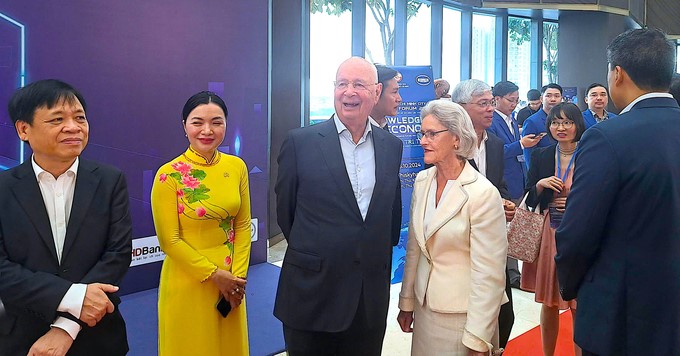
Professor Klaus Schwab (3rd from left) and his wife (left) at the talkshow. Photo: HT.
Second, e-commerce and digital services thrived during the COVID-19 pandemic. Platforms such as Tiki, Shopee, and MoMo developed rapidly and received support from the young, tech-savvy population. Vietnam has set out a plan to develop e-commerce for the 2021–2025 period, with the goal of 55% of the population participating in online shopping by 2025. This brings huge opportunities for small and medium-sized enterprises (SME) to access new markets and be able to compete on a global scale.
Third is digital infrastructure and smart cities. Currently, Vietnam is investing significantly in building smart cities across the country, including Hanoi City, Ho Chi Minh City, and Da Nang City. These initiatives aim to improve urban management through the use of the Internet of Things (IoT), AI, and data analytics.
Finally is sustainable development and green technology. The Intelligence Era brings Vietnam the opportunity to lead in sustainable development because of strong commitments in the national strategy on green growth. Besides, renewable energy innovation, smart agriculture, and electric transportation also play an important role in Vietnam's transformation to a low-carbon economy.
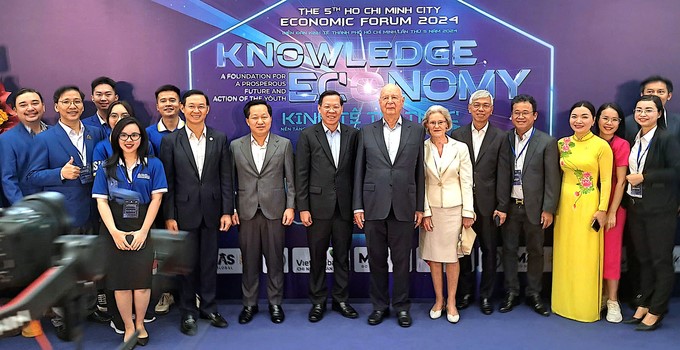
Leaders of the Ho Chi Minh City People's Committee and the city's young intellectuals took souvenir photos with Professor Klaus Schwab and his wife after the talkshow. Photo: HT.
Responding to the question "What does the Intelligence Era mean for the youth?" Professor Klaus Schwab judged that the Intelligence Era is a period full of opportunities, especially for the young generation. New technologies, such as AI, Blockchain, IoT, and biotechnology, are opening up spaces for innovation and start-ups that never existed before, and Vietnamese youth have special advantages to seize these opportunities. The newly established Center for Industrial Revolution 4.0 (C4IR) in Ho Chi Minh City will be an opportunity for young people to access unprecedented resources, guidance, and markets.
Professor Klaus Schwab was born in 1938 in Ravensburg, Federal Republic of Germany. He is the Founder and Chairman of the World Economic Forum (WEF), a famous master of economics and science and technology who has created profound socio-economic changes around the world through WEF. He holds a PhD in Economics from the University of Fribourg and a PhD in Engineering from the Swiss Federal Institute of Technology (ETH Zurich). He then completed a Master of Public Administration from the John F. Kennedy School of Government at Harvard University. At the age of 33, he founded WEF in Davos (Switzerland). Under his guidance, WEF has grown into a global platform that gathers leaders to address important issues such as globalization, climate change, and sustainable development.
Translated by Thu Huyen
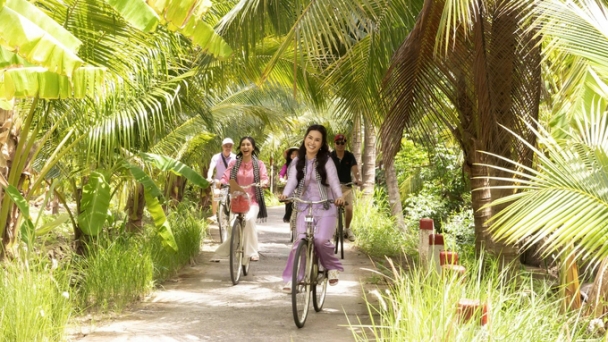
(VAN) During the Net Zero tour, tourists are instructed on what to eat to reduce carbon emissions and how to offset emissions, contributing to the good regeneration of the ecological environment.
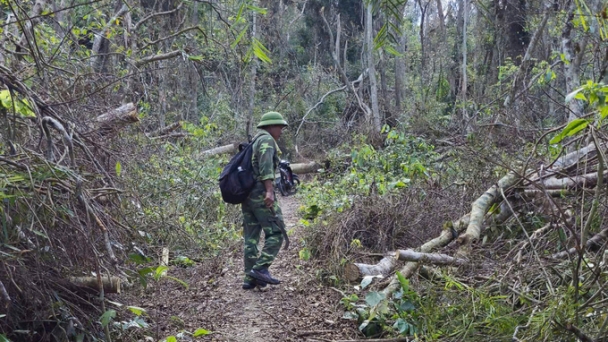
(VAN) As recovery efforts for the damages caused by Typhoon No. 3 at Cat Ba National Park remain challenging, the imminent threat of wildfires forced local authorities to reallocate resources in response.
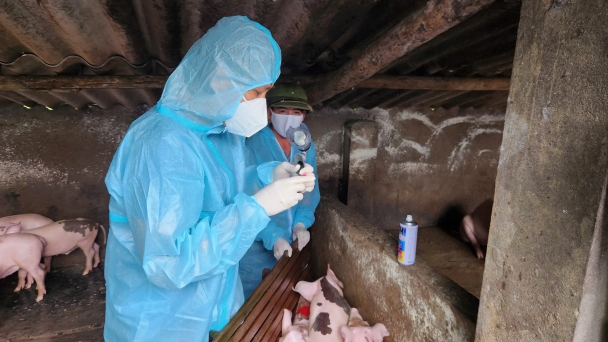
(VAN) Through evaluation and testing, the pig herd in Mong Cai city injected with the experimental African swine fever vaccine achieved a protection rate of 80%.
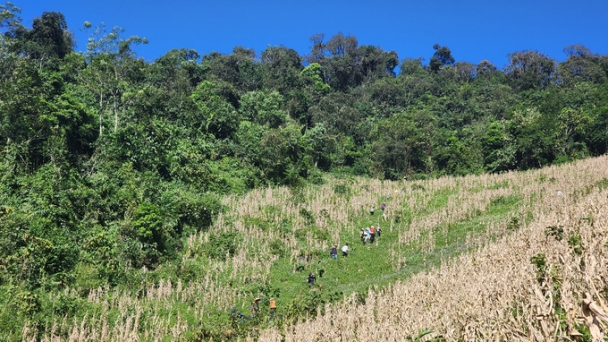
(VAN) To restore forested areas in Northwestern Vietnam, the Forest Protection Department of Van Ho District and the commune's authorities collaborated to coordinate the second phase of the 'Contribute Leaves to the Forest' event.
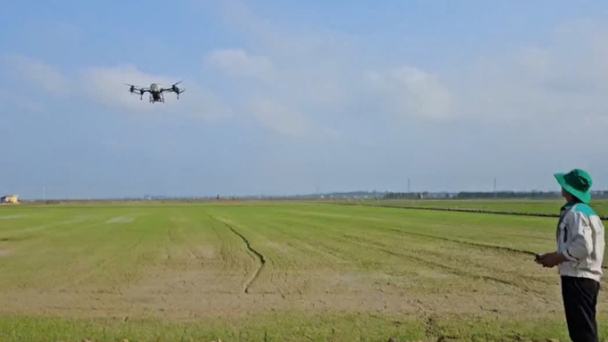
(VAN) For the first time, farmers in southern Ba Don witnessed aerial seeding and fertilization. Unusual excitement arises from the day they sowed seeds to the day they weighed the rice and counted their earnings.
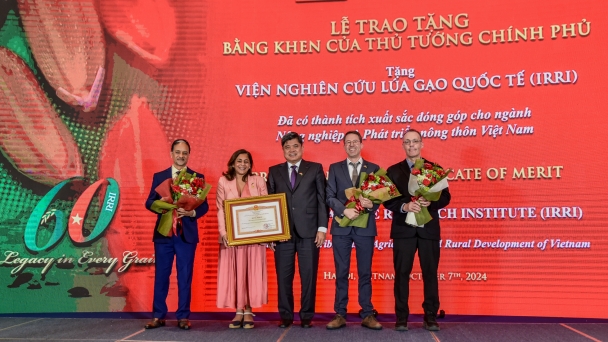
(VAN) On the afternoon of October 7, the MARD held a ceremony to present prestigious awards from the Vietnamese Government and the MARD to the International Rice Research Institute (IRRI).